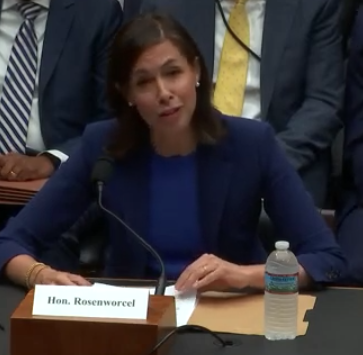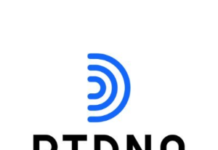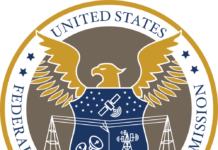
The Federal Communications Commission’s party lines clashed with Congressional party lines on Tuesday morning, as all five FCC Commissioners met in a hearing with the House Energy & Committee Communications and Technology Subcommittee.
While the hearing was originally scheduled to address the FCC’s proposed budget for the next fiscal years, questions of overregulation took center stage as House Republicans questioned whether the Democratic-majority FCC is overstepping its bounds in numerous areas. While net neutrality was firmly in the foreground, issues facing radio were never completely out of focus – including AI, EEO, and .
In her opening statement, House Energy and Commerce Committee Chair Cathy McMorris Rodgers (R-WA) pulled no punches. “The FCC is circulating an order that would regulate the use of artificial intelligence in political ads—a task that does not fall under the jurisdiction of the commission, and which drew condemnation from the Federal Election Commission, the independent agency who does hold that authority.”
“This pattern of the FCC abusing its authority and ignoring Congressional direction is just another example of the Biden Administration’s efforts to assert more federal control over the American people’s lives. This must end, and I look forward to the courts stepping in to overturn these unlawful power grabs.”
The FCC has taken an increasingly heavy-handed approach to tightening regulations across all divisions it oversees since reaching a full count with the confirmation of Anna Gomez. This has included questioning the efficacy of the Main Studio Rule‘s removal, the return of the FM duplication rule and Form 395-B collection, and the potentiality of increasing ownership caps.
Communications and Technology Subcommittee Chair Bob Latta (R-OH) added it was time for the FCC to pursue a, “light-touch regulatory environment.”
Despite this initial barrage, Chairwoman Rosenworcel and the FCC’s Democratic members took the opportunity to praise net neutrality and the importance of affordable internet for all in their opening statements and throughout.
As the hearing went on, the FCC’s oversight was reexamined in light of the Supreme Court’s rollback of the “Chevron deference,” a decades-old practice that allowed courts to defer to federal agencies like the FCC when interpreting ambiguous laws, as long as the agencies’ interpretations weren’t arbitrary or capricious.
In his testimony to the Committee, Republican FCC Commissioner Brendan Carr denounced the, “wishlist of progressive policy goals,” he saw the FCC chasing on behalf of the Biden administration – including EEO reporting. Carr called for refreshed enforcement procedures to keep the FCC within constitutional parameters in light of the SCOTUS SEC vs. Jarkesy decision. The high court ruled that individuals accused of fraud by the Securities and Exchange Commission are entitled to a jury trial. This decision significantly curtails the powers traditionally held by agency Administrative Law Judges, potentially affecting future actions by the FCC.
Moving forward, entities could challenge the FCC’s decisions in court, arguing against the necessity of a hearing designation order based on this new precedent.
At the tail end of the hearing, Chairwoman Rosenworcel did get to defend her recent Notice of Proposed Rulemaking about disclosing AI-usage in political ads delivered via broadcast that has put her at odds with the GOP and the Federal Election Commission.
“Congress has given us this authority for broadcast, radio, satellite, and cable. That’s a substantial portion of campaign ads, and we’ve exercised this authority as far back as 1938. So this is a system everyone has used for decades. Every single campaign reports when an ad was run, who paid for it, and on air they say who’s responsible for it…We have these files for federal, state, local, and issues. In other words, it’s a far greater community than what the Federal Election Commission oversees.”
“When you think about AI and the confusion involved and the complexities of these issues, asking for public comment about an issue of transparency is a good thing,” said Chairwoman Rosenworcel. “Let’s work together to make sure that this happens. We want to make sure it happens in a way that solves the problem completely, so applies to all the channels of communication, and solves the problem comprehensively in a way that doesn’t devolve into different agencies arguing over, does the FCC have the authority? Is the FEC? Has Congress delegated this authority? Let’s get the problem solved by working together.”
However, Commissioner Carr got the last word in, saying, “This is not something that we should be rushing through on the eve of an election. As you noted, it’s complex. You’ve got deceptive defects on the one hand, you’ve got the use of chat GPT to run scripts for ads on the other end. This is something that Congress is taking a serious look at. It’s complicated. We shouldn’t be rushing this through before an election.”







